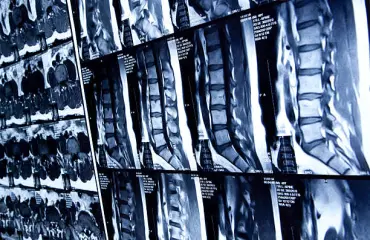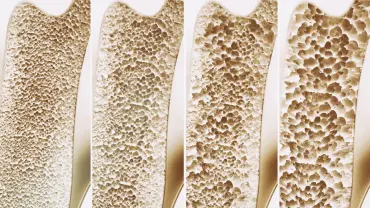As spine experts, Dr. Harvinder Bedi and our team here at Camelback Spine Care understand the important role your spine plays in your overall health. There's nothing quite like back pain to disrupt your life, and degenerative disc disease is a condition that makes you more vulnerable to issues like herniated discs.
Here's a look at degenerative disc disease and whether you may be at risk.
Degenerative disc disease basics
Your spine is made up of 33 vertebrae that stretch from the base of your head to your pelvis. Separating the vertebrae that can move are 23 intervertebral discs, which provide crucial cushioning and stability.
The discs themselves are made up of a tough, cartilaginous outer layer, which contains a soft, jelly-like substance on the inside. With degenerative disc disease (DDD), these discs lose moisture, become brittle, and/or begin to weaken due to wear and tear. While DDD is referred to as a disease, it's really a condition that can lead to compression of the highly sensitive nerve roots that branch out from your spine.
While pain is a common complaint, you can also experience numbness and/or tingling that radiates into your upper and lower extremities (arms and legs). We should mention that you may feel no symptoms at all, but as DDD progresses, you're more at risk for developing them.
Risks for degenerative disc disease
There are many factors that may place you more at risk for DDD, some of which you can control and others you can't.
For example, DDD is often referred to as a natural wear-and-tear disease, which means age plays a central role, and clearly, there's nothing you can do about the aging process.
There is, however, ample research that points to other factors that place you at greater risk for developing DDD.
One study found that the following are considerable risk factors in DDD:
- Excess weight
- Diabetes
- Hip and knee osteoarthritis
- Tobacco use
The good news is that there are ways to offset these risks (quitting smoking or losing weight, as examples), and we do offer effective treatment options for DDD.
Treating degenerative disc disease
If you develop DDD, there are several ways we can go about treating any symptoms that may develop.
Your treatment depends upon the severity of the problem, but can include one or more of the following:
- Over-the-counter anti-inflammatory medications
- Physical therapy
- Regenerative medicine, such as platelet-rich plasma therapy
- Lumbar fusion
- Discectomy (we remove the disc and replace it with an artificial one)
Of course, we prefer to start out conservatively, so we urge you to see us at the first signs of a problem.
To learn more about your risks for degenerative disc disease or how we can go about treating the condition, contact one of our two our offices in Peoria or Phoenix, Arizona, to set up an appointment.

.webp)
.webp)



